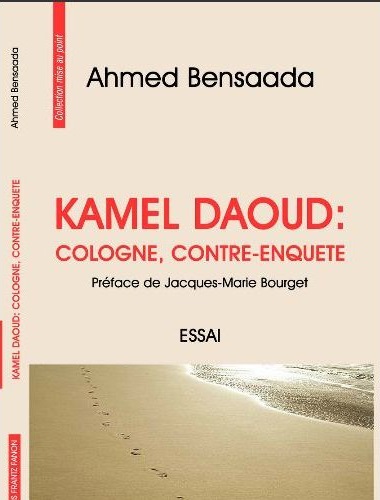by Colin Todhunter (Morning Star, UK)
It's a familiar scenario. A major political event occurs and the mainstream media opts for simplistic explanations.
Take the so-called Arab Spring for instance.
The overriding narrative is about how Facebook and Twitter has changed that part of the world.
The premise is that widespread, spontaneous, grassroots uprisings spread within individual countries and then from one country to another, largely as a result of the use of social media technology.
However, what we were not informed of was the extent to which many of these events had been managed and preplanned.
In many ways the Arab Spring is reminiscent of the earlier revolutions in Eastern Europe which occurred following the collapse of the Soviet Union.
Also portrayed by the media as grassroots uprisings, many of those "revolutions" were in fact destabilisation regime change operations - funded and orchestrated by the US.
Although many independently acting ordinary folk did actually become involved, they ended up being highly disillusioned with the outcome. But the West got what it wanted - pro-western governments in power.
The covert US funding and management of the revolutions in Eastern Europe has been well documented. A series of governments were overthrown by mobilising disaffected, pro-western people financed by the US government via various foundations, such as National Endowment for Democracy, National Democratic Institute for International Affairs, Freedom House, the Centre for Non-Violent Action and Strategies and the United States Agency for International Development.
The same has been true of the Arab Spring - a nice media-friendly soundbite denoting renewal and hope.
In Egypt, US-friendly Mubarak was ousted and a US-friendly military junta installed - not much change, not much hope.
The turmoil in Libya and now in Syria are spinoffs from the events in Tunisia and Egypt. And it doesn't take much to appreciate that events across that part of the world are turning out to be favourable for the US.
That's because it has had its fingers all over the Arab Spring since before day one. While the mainstream media homed in on the role of Facebook and Twitter in the Egyptian uprising, little - if anything - was said about the US government's role, through its various foundations and institutes, in actually promoting the use of social media technology among the young and encouraging political activism in the Arab world.
French-Canadian Ahmed Bensaada's new book Arabesque Americain documents the links, funding and main figures behind pro-democracy organisations in over a dozen Arab countries, including Egypt, Lybia, Tunisia and Syria, which were financed by the US.
Indeed he identifies the specific pro-democracy groups by name and the exact amount of US funding each received. Hardly a series of autonomous, grassroots uprisings as the media would have us believe.
Notwithstanding the genuine desires, frustrations and grievances that propelled many ordinary folk to eventually join in and take to the streets, much of the Arab Spring seems to have been backed by a US policy of destabilisation.
George W Bush once stated that west Asia through to Pakistan represented an "arc of instability," and that it was the US government's mission to export freedom there and to bring stability to the region. Look no further than Pakistan to see what the US has brought.
An active US high-risk campaign has been mounted to divide, weaken and control a nuclear-armed country by fuelling ethnic and regional tensions and exploiting factionalism between and within the military, intelligence services and civilian government.
The ongoing destabilisation of Pakistan and even possible eventual strategically managed Balkanisation would serve to counter Chinese influence and fit in with US aims to assume control of the wider region, from Morocco to the borders of a compliant India.
Divide and rule has been a tactic of many an empire throughout the ages, and it is no coincidence that so many nations, usually highly strategic for US interests - Iraq, Afghanistan, Syria and Libya, for example - have been destabilised, after having been weakened at the centre by the US.
Of course they are now being "supported" by the US, except in the case of Syria. Or at least not yet.
With its ally Syria teetering on the brink, perhaps Iran was all along the ultimate goal for the US domino policy of destabilisation in the Arab world and West Asia.
Oil-rich and holding a key geopolitical position in relation to the mineral-rich central Asian republics, the US has been for some time taking aim at Iran. If its covert operations to undermine the Iranian government and foment dissent fail, there's always direct military intervention, and the huge buildup of US military hardware in the region suggests this is becoming a distinct possibility.
As part of "exporting freedom, democracy and stability," the US is running covert operations, building bases or massive embassy compounds and involving itself in training, arming, and funding local forces in 75 countries across the globe.
Moreover, last year alone, its International Military Education and Training programme indoctrinated more than 7,000 people from 130 countries.
Countless ordinary decent folk are now living in chaos as a result of US and western interference. From North Africa through to Syria, Iraq, Iran, Afghanistan and into Pakistan, the US has stoked up ethnic and political tensions and has attacked or debased the sovereignty of nation states in its attempt to secure control of the entire region.
Whether it is part of the bogus "war on terror," or whether it occurs under the lie of "humanitarianism," US-led imperialism has effectively brought an arc of tragedy to the region.
And it's a tragedy of epic proportions.
Morning Star (UK), Monday 12 December 2011






